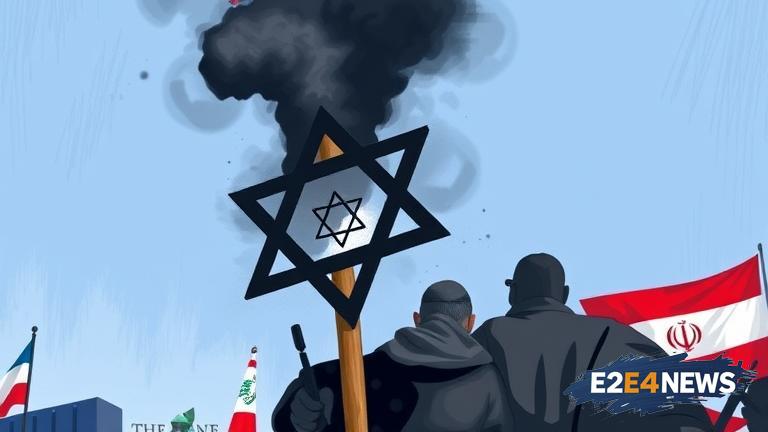In recent months, Iran and Australia have witnessed a disturbing increase in antisemitic attacks, leaving the global community to grapple with the implications of such hate crimes. The Iranian government has been accused of perpetuating antisemitic rhetoric, with some officials making inflammatory statements about Israel and the Jewish people. Meanwhile, in Australia, there have been reports of vandalism, harassment, and physical assaults against Jewish individuals and institutions. The Australian government has condemned these attacks, but many are calling for more to be done to address the root causes of antisemitism. The rise in antisemitic attacks is not limited to these two countries, as similar incidents have been reported in other parts of the world, including Europe and North America. Experts point to a combination of factors, including social media, political polarization, and a lack of education about Jewish history and culture, as contributing to the growing problem of antisemitism. In Iran, the government’s antisemitic rhetoric has been linked to its opposition to Israel, with some officials denying the Holocaust and promoting conspiracy theories about Jewish people. The Iranian government’s actions have been widely condemned by the international community, with many calling for greater accountability and action to address the growing threat of antisemitism. In Australia, the government has established a task force to investigate and prevent antisemitic attacks, but many are calling for more to be done to address the underlying causes of the problem. The Jewish community in Australia has expressed concern about the rise in antisemitic attacks, with many feeling vulnerable and intimidated. The Australian government has pledged to increase funding for security measures at Jewish institutions, but many are calling for a more comprehensive approach to addressing the problem. The rise in antisemitic attacks has also sparked a wider debate about the need for greater education and awareness about Jewish history and culture. Many experts believe that a lack of understanding and empathy is contributing to the growing problem of antisemitism, and that education and outreach programs are essential to addressing the issue. The international community has a critical role to play in addressing the growing threat of antisemitism, and many are calling for greater cooperation and action to prevent hate crimes and promote tolerance and understanding. The United Nations has condemned the rise in antisemitic attacks, and many countries have pledged to increase efforts to prevent and respond to hate crimes. However, much more needs to be done to address the root causes of antisemitism and to promote a culture of tolerance and respect. The Jewish community worldwide is calling for greater action and accountability, and for governments and international organizations to take a stronger stance against antisemitism. The rise in antisemitic attacks is a reminder that hate crimes and intolerance are a global problem, and that a comprehensive and coordinated approach is needed to address the issue. The international community must work together to promote education, awareness, and understanding, and to prevent hate crimes and promote tolerance and respect. The situation in Iran and Australia is a wake-up call for the global community, and a reminder that antisemitism is a growing threat that requires immediate attention and action. The world must come together to condemn antisemitism and to promote a culture of tolerance and respect, and to ensure that Jewish communities worldwide can live without fear of persecution or harassment.
